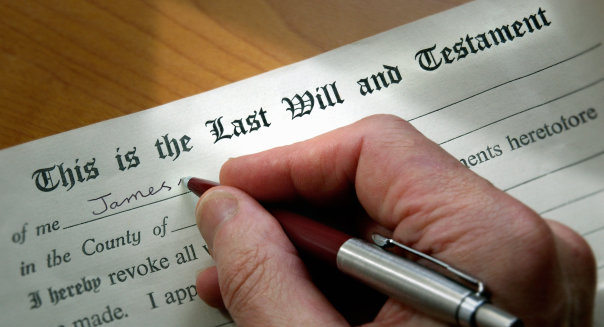Dealing with issues on death and aging is never easy, nor should it be. The truth of the matter is that there are a lot of decisions that have to be made in the last part of someone’s life, as well as right after their death. If you’ve been asked to handle any of these decisions, consider yourself very fortunate indeed. It’s a sign of trust that you would be appointed in charge of handling any of these points, especially the handling of someone’s after-death affairs. Executing a will is a tricky process that has to be handled very carefully. Failure to do it properly can cause problems for the estate, which in turn causes problems for the estate’s heirs.
What does an executor do? In short, they handle all of the legal obligations of the estate on behalf of the deceased. While outsiders can be appointed by a court or by the will, most of the time the executor is someone closely related to the deceased in some way. This is usually a spouse or a child, but it can be distant relatives as well. It can take several months or even several years to fully settle an estate, depending on how complicated it is.
The estate consists of all of the assets a person leaves behind, no matter the value. So some estates are extremely large, while others are quite small. Let’s go over each of the top tasks an executor must do.
1. Paying bills
Think you have a tough time paying the bills now? Wait until you become the executor of an estate. You have to track down all of the bills and debts the estate owes before you can distribute any funds. This means that if someone died with a large amount of assets but they have debts to resolve, you have to be willing to resolve those debts before you can just proceed to the distribution stage.
2. Following the wishes of the deceased per the will
Handling funeral arrangements and other after-death requests of the deceased will also be a strong priority. You may also have to navigate a family that isn’t really ready to face that a death has occurred. Be prepared to defend the wishes of the deceased as much as possible, because a death can really bring out some strong emotions.
3. Addressing taxes
Tax liabilities have to be addressed with an estate as quickly as possible. This primarily means calculating and paying inheritance taxes that are due on the estate. Not all estates have to worry about this. It’s possible to exempt the estate from some or all of the taxes required, provided that proper estate planning has taken place.
4. Locating and filing the will
This is an incredibly important part of the process. You have to search for the will, and then you have to file it with the local probate court. Sometimes the will takes a while to find, while in other cases finding the will is very simple. If you already know where the will is, then it’s just a matter of filing it.
5. Taking inventory of all assets within the estate
This is a part that can take a while. In order to satisfy the law, you must be able to account for every single piece of an estate. This is also the part that gets tricky, because families have been known to take items before the will has even been settled.
6. Distributing the assets to beneficiaries
This is probably one of the hardest parts of being an executor, because you have to get in the middle of some family disagreements in order to do your job. If the will says that someone gets a certain property, then it’s up to you to make sure that transfer happens. This s why wills get disputed in court, because it’s not always clear who gets what, nor is it clear how much is given. When it comes to very large estates, a lengthy probate battle is almost a certainty. The more planning that can be done with the will, the better off all parties will be in the long run.
It’s very important that you know what you’re getting into, and that you’re up to the challenge. As stated earlier in this guide, this isn’t something that will be resolved overnight. You will need to make sure that you’re going through every single detail, because leaving out details can really get the estate in trouble. Choose wisely, and choose well!
